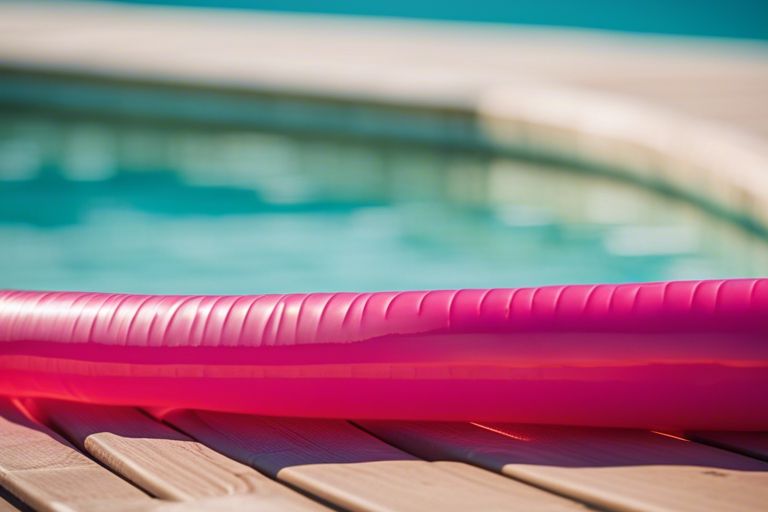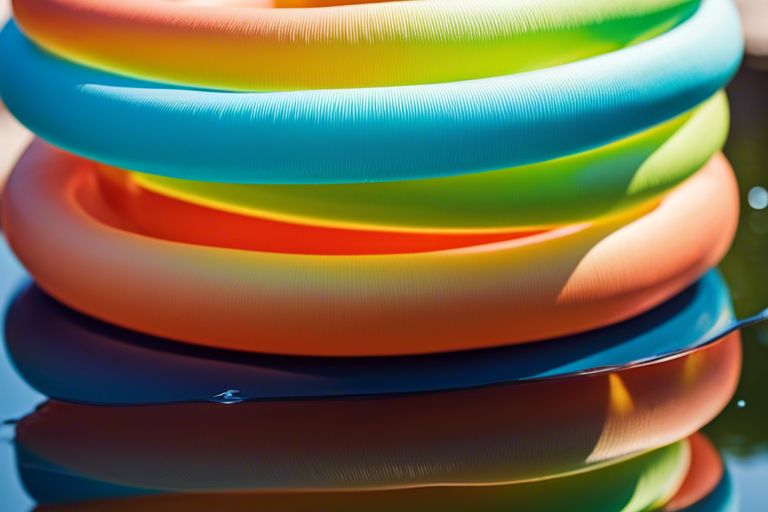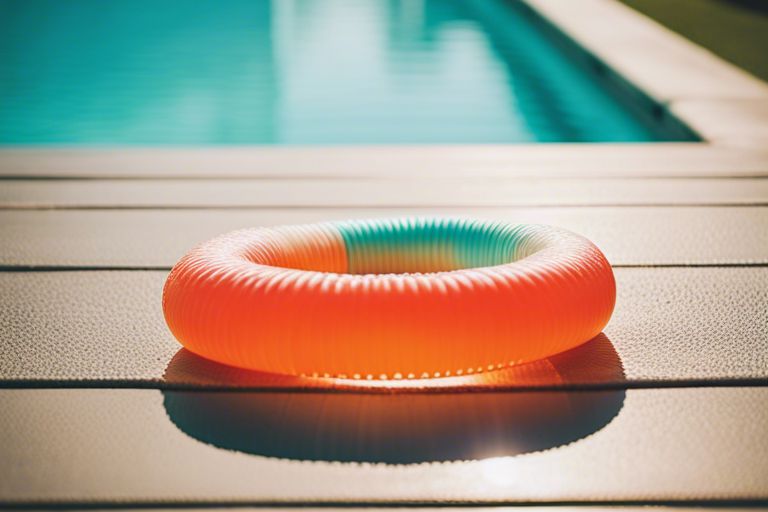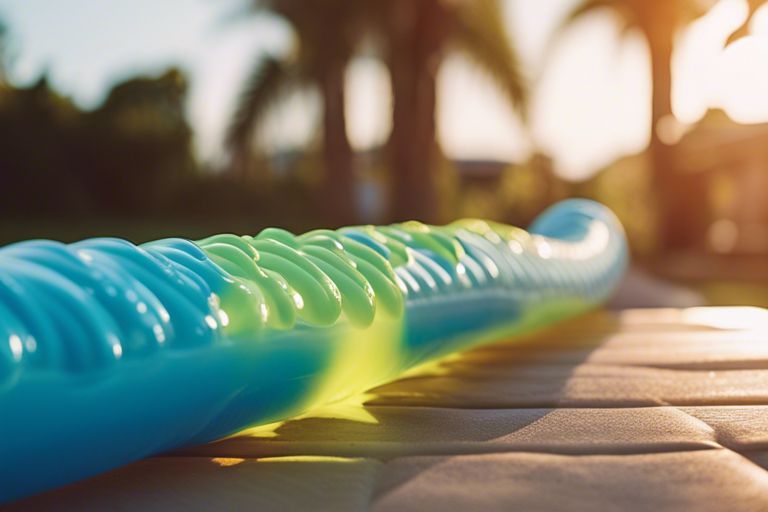Overheating pool noodles can bring about safety concerns and potential hazards when exposed to extreme heat sources. Pool noodles, commonly used as flotation devices and pool toys, are typically made of closed-cell foam material. Understanding the composition of pool noodles and their melting point is crucial to prevent accidents and ensure safe usage. Let’s examine into the science behind pool noodles and explore the question – can pool noodles melt?

Key Takeaways:
- Pool noodles can melt: Pool noodles are made from a material called polyethylene foam, which has a low melting point. Exposure to high temperatures, such as direct sunlight or prolonged contact with hot surfaces, can cause pool noodles to melt.
- Caution is required in hot environments: It is important to avoid leaving pool noodles in direct sunlight or near sources of heat, as this can lead to melting. Storing them in a shaded area or indoors when not in use can help prevent melting.
- Proper care and maintenance can extend their lifespan: By taking preventive measures and storing pool noodles properly, such as in a cool and dry place, you can help prolong their lifespan and prevent them from melting prematurely.

Understanding Pool Noodles
Composition and Materials
On examining the composition of pool noodles, one will find that they are typically made from closed-cell polyethylene foam. This material is chosen for its buoyancy in water and durability to withstand outdoor conditions.
Varieties and Uses
Materials commonly used for pool noodles include foam and rubber. Foam noodles are often used for relaxation and aquatic exercise, while rubber noodles are preferred for more intense water activities due to their increased durability and strength.
Composition-wise, pool noodles are designed with a hollow center to provide additional buoyancy for users. They are commonly used as flotation devices in swimming pools, for aquatic therapy exercises, or as fun water toys for children to play with.

Melting Characteristics of Pool Noodles
Heat Resistance
If you are wondering about the heat resistance of pool noodles, rest assured that they are designed to withstand normal outdoor and poolside temperatures. However, exposing them to high heat sources such as flames or hot surfaces can lead to melting.
Conditions Affecting Melting
Pool noodles are typically made from a type of foam called polyethylene, which has a low melting point. Conditions such as direct contact with fire or prolonged exposure to extreme heat can cause pool noodles to melt.
Understanding the melting characteristics of pool noodles can help you ensure their longevity and prevent any accidents. Always use pool noodles in accordance with their intended purpose and avoid exposing them to excessive heat sources to maintain their structural integrity.
Safety Considerations
Hazardous Fumes and Health Risks
Not all pool noodles are created equal, and some may contain chemicals that can produce hazardous fumes when exposed to high temperatures. It is important to use caution and ensure proper ventilation when using pool noodles in potentially hot environments.
Best Practices for Pool Noodle Usage
Hazardous The best way to avoid any potential risks when using pool noodles is to never expose them to direct flames or high heat sources. Keep the pool noodles away from fire pits, grills, candles, or any other open flames to prevent any melting or production of hazardous fumes.
Usage Additionally, always inspect pool noodles for any signs of damage or deterioration before use. Any cuts, punctures, or visible wear and tear can compromise the integrity of the material and increase the risk of melting or releasing harmful chemicals. Proper storage in a cool, dry place away from direct sunlight can also help prolong the lifespan of pool noodles.
To wrap up
To put it briefly, pool noodles can indeed melt due to their composition of lightweight foam. When exposed to high temperatures, such as direct sunlight or hot surfaces, pool noodles can soften and deform. It is important to store pool noodles properly and keep them away from heat sources to prevent melting. By following these simple precautions, you can prolong the lifespan of your pool noodles and enjoy them for many swimming seasons to come.
FAQ
Q: Can pool noodles melt?
A: Yes, pool noodles can melt if exposed to high temperatures. Most pool noodles are made from polyethylene foam, which has a melting point of around 240°F. Leaving pool noodles near sources of heat, such as grills or fire pits, can cause them to melt.
Q: How can I prevent pool noodles from melting?
A: To prevent pool noodles from melting, store them in a cool, shaded area away from direct sunlight and sources of heat. Avoid leaving them near grills, fire pits, or hot surfaces. Additionally, consider using a pool noodle holder or rack to keep them off the ground and away from potential heat sources.
Q: Are there any alternatives to traditional pool noodles that are more heat-resistant?
A: Yes, there are alternatives to traditional pool noodles that are more heat-resistant. Look for pool noodles made from EVA foam, which has a higher melting point than polyethylene foam. Additionally, some manufacturers offer pool noodles with a UV-resistant coating that can help protect them from sun damage and high temperatures.



